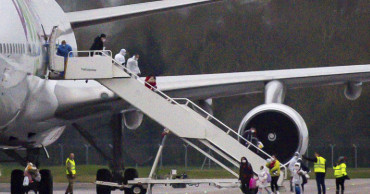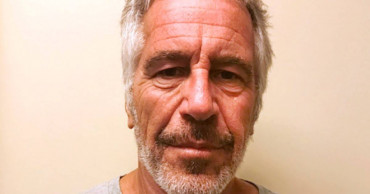French
As latest African country Ivory Coast asks French troops to leave
Ivory Coast announced on Tuesday that French troops will leave the country after a decadeslong military presence, the latest African nation to downscale military ties with its former colonial power.
Ivorian President Alassane Ouattara said the pullout would begin in January 2025. France has had up to 600 troops in Ivory Coast.
“We have decided on the concerted and organized withdrawal of French forces in Ivory Coast,” he said, adding that the military infantry battalion of Port Bouét that is run by the French army will be handed over to Ivorian troops.
Outtara's announcement follows that of other leaders across West Africa, where France’s militaries are being asked to leave. Analysts have described the requests for French troops to leave Africa as part of the wider structural transformation in the region’s engagement with Paris.
France has suffered similar setbacks in several West African countries in recent years, including Chad, Niger and Burkina Faso, where French troops that have been on the ground for many years have been kicked out.
Several West African nations — including coup-hit Mali, Burkina Faso and Niger — have recently asked the French to leave. Among them are also most recently Senegal, and Chad, considered France’s most stable and loyal partner in Africa.
Read: At least 24 killed by flooding, landslides after days of heavy rains in Ivory Coast’s largest city
The downscaling of military ties comes as France has been making efforts to revive its waning political and military influence on the continent by devising a new military strategy that would sharply reduce its permanent troop presence in Africa.
France has now been kicked out of more than 70% of African countries where it had a troop presence since ending its colonial rule. The French remain only in Djibouti, with 1,500 soldiers, and Gabon, with 350 troops.
Analysts have described the developments as part of the wider structural transformation in the region’s engagement with Paris amid growing local sentiments against France, especially in coup-hit countries.
After expelling French troops, military leaders of Niger, Mali and Burkina Faso have moved closer to Russia, which has mercenaries deployed across the Sahel who have been accused of abuses against civilians.
Read more: Ivory Coast issues arrest warrant for presidential candidate
However, the security situation has worsened in those countries, with increasing numbers of extremist attacks and civilian deaths from both armed groups and government forces.
1 year ago
Where to Learn the French Language in Dhaka
French is becoming increasingly popular among professionals and students in Bangladesh. Being one of the leading international languages of the world, skills in the French language can open career and academic opportunities for Bangladeshis. Besides, several European countries and Canada value French language skills for immigration. Let’s delve into several learning centers in Dhaka that offer French language courses.
Some Popular Places to Learn French in Dhaka City
Alliance Française de Dhaka
Alliance Française de Dhaka or AFD is the premier organization in Bangladesh for learning French. The non-profit organization has been working in Bangladesh since 1959 and is playing a key role in promoting French art and culture in the country.
AFD offers French learning options for children, teens, and adults. They have both extensive and intensive courses for each level. In addition to A1, A2, B1, and B2, AFD also has a “Beginner” course to start things off from absolute basics. All of the classes are conducted offline.
The course duration is about 40 hours for the extensive program and 76 hours for the intensive one. The cost varies depending on the age group and course type. The fees range from 3,500 BDT (non-beginner children) to 16,600 BDT (extensive adults). The intensive program for adults can cost up to 19,800 BDT with books.
Read more: Essential Skills to Learn Before Going to Study Abroad
Institute of Modern Languages (IML), Dhaka University
The Institute of Modern Languages of Dhaka University is one of the oldest language research projects and learning institutes in Bangladesh. Founded in 1974, IML works as an instituted faculty under Dhaka University and offers bachelor's, master's, Ph.D., and M.Phil. in selected linguistics and culture.
Currently, IML offers non-degree certificate courses in 13 different languages including French. The French language course curriculum comprises 1 year in the junior certificate course and senior certificate course. The minimum requirement to be admitted to the junior certificate course is to have at least a 2.5 GPA in HSC.
There’s also a 3-month long short course (60 Hours) on French language. All of the classes are conducted offline. The application fee is 500 BDT and the course fee is 9,500 BDT.
BRAC Institute of Languages (BIL), BRAC University
BRAC Institute of Languages or BIL is the third UGC-approved language research institute of Bangladesh. BIL started its journey in modular form offering English language courses to the students of BRAC University back in 2005.
Read more: Getting International German Language Certificates from Bangladesh: A Comprehensive Guide
Over the years, the modular structure evolved into a structured language research institute which was then renamed as BIL in 2012.
As part of its Modern Languages curriculum, BIL offers courses in 7 different languages including French. Currently, BIL offers on-campus offline beginner-level courses in French. The course fee for the program is 6150 BDT.
Shield Language Academy Dhaka
Shield Language Academy Dhaka is another leading institute for learning French in Dhaka. With over several years of experience, Shield is a trusted language learning center specializing in different languages.
Shield Academy offers A1 to B2 level programs for the French language. The duration for each of the courses is 4 months with 2 classes per week. The cost of each course is 16,500 BDT. Additionally, the admission fee will be 1000 BDT and the textbook and workbook fee will also be 1000 BDT.
Read more: 10 Ways You Can Improve Your English Pronunciation
AIUB Institute of Continuing Education
AIUB Institute of Continuing Education started its journey back in 2007 as a means to provide technical skill development programs to the graduates of the university. The aim was to make them industry-ready and initiate essential skills to thrust them ahead in the job market.
Over the years, AIUB ICE has expanded into a diverse foray of skill development including foreign language courses. Currently, it provides A1, A2, B1, and B2 level French courses to its students as well as outsiders.
The duration of the French course of ICE is about 4 months. Classes are held on Fridays and the medium of instruction is online. The cost of each level is 9000 BDT.
Daffodil Institute of Languages, Daffodil University
Daffodil Institute of Languages was formed as part of Daffodil University’s outreach upskilling program. DIL aims to provide certified knowledge of foreign languages to individuals to help in their career prospects. Currently, DIL offers certificate courses in English, pre-university English, Japanese, Chinese, French, and Quranic Arabic.
Read more: 10 Best Free Android Apps to Learn English Vocabulary
Currently, DIL is offering an A1-level French course. The duration of the course is 2 months with three classes per week. The cost of the course is 30,000 BDT including the registration fee for the A1 DELF exam.
1 year ago
Violent French pension protests erupt as 1M demonstrate
More than 1 million people demonstrated across France on Thursday against unpopular pension reforms, and violence erupted in some places as unions called for new nationwide strikes and protests next week, coinciding with King Charles III's planned visit to France.
The Interior Ministry said the march in Paris — marred by violence, as were numerous marches elsewhere — drew 119,000 people, which was a record for the capital during the pension protests. Polls say most French oppose President Emmanuel Macron's bill to increase the retirement age from 62 to 64, which he says is necessary to keep the system afloat.
Building on the strong turnout, unions swiftly called for new protests and strikes on Tuesday when the British king is scheduled to visit Bordeaux on the second day of his trip to France. The heavy wooden door of the elegant Bordeaux City Hall was set afire and quickly destroyed Thursday evening by a members of an unauthorized demonstration, the Sud Ouest newspaper said.
Nationwide, more than a million people joined protest marches held in cities and towns around the country Thursday, the ministry said.
Interior Minister Gerald Darmanin, visiting police headquarters Thursday night as fires still burned in some Paris neighborhoods, gave assurance that security “poses no problem” and the British monarch will be “welcomed and welcomed well.”
He said there was “enormous degrading” of public buildings and commerce Thursday, “far more important than in precedent demonstrations.”
“There are troublemakers, often extreme left, who want to take down the state and kill police and ultimately take over the institutions,” the minister said.
The demonstrations were held a day after Macron further angered his critics by standing strong on the retirement bill that his government forced through parliament without a vote.
“While the (president) tries to turn the page, this social and union movement ... confirms the determination of the world of workers and youth to obtain the withdrawal of the reform,” the eight unions organizing protests said in a statement. It called for localized action this weekend and new nationwide strikes and protests Tuesday.
Strikes upended travel as protesters blockaded train stations, Charles de Gaulle Airport in Paris, refineries and ports.
In Paris, street battles between police and black-clad, masked groups who attacked at least two fast food restaurants, a supermarket and a bank reflected intensifying violence and drew attention away from the tens of thousands of peaceful marchers.
Police, pelted by Molotov cocktails, objects and fireworks, charged multiple times and used tear gas to disperse rioters. A haze of tear gas fumes covered part of the Place de l'Opera, where demonstrators converged at the march's end. Darmanin said radicals numbered some 1,500.
Read more: Nearly 1 million French march in 4th day of pension protests
Violence marred other marches, notably in the western cities of Nantes, Rennes and Lorient — where an administrative building was attacked and the courtyard of the police station was set afire and its windows broken — and in Lyon, in the southeast.
Thursday's nationwide protests were the ninth union-organized demonstrations since January, when opponents still hoped that parliament would reject Macron's measure to raise the retirement age. But the government forced it through using a special constitutional measure.
In an interview Wednesday, Macron refused to budge from his position that a new law is necessary to keep retirement coffers funded. Opponents proposed other solutions, including higher taxes on the wealthy or companies, which Macron says would hurt the economy. He insisted the government’s bill to raise the retirement age must be implemented by the end of the year.
The Constitutional Council must now approve the measure.
“We are trying to say before the law is enacted ... that we have to find a way out and we continue to say that the way out is the withdrawal of the law," the chief of the moderate CFDT trade union, Laurent Berger, told The Associated Press.
High-speed and regional trains, the Paris metro and public transportation systems in other major cities were disrupted. About 30% of flights at Paris Orly Airport were canceled.
The Eiffel Tower and the Versailles Palace, where the British monarch is to dine with Macron, were closed Thursday due to the strikes.
Violence, a recurring issue at protests, has intensified in recent days. Darmanin said that 12,000 security forces were in the French streets Thursday, with 5,000 in Paris,
The Education Ministry said in a statement that about 24% of teachers walked off the job in primary and middle schools on Thursday, and 15% in high schools.
At Paris' Gare de Lyon train station, several hundred strikers walked on railway tracks to prevent trains from moving, brandishing flares and chanting “and we will go, and we will go until withdrawal" and “Macron, go away.”
Read more: Anger spreads in France over Macron's retirement bill push
"This year perhaps maybe our holidays won’t be so great," said Maxime Monin, 46, who stressed that employees like himself, who work in public transport, are not paid on strike days. "But I think it’s worth the sacrifice.”
In the northern suburbs of Paris, several dozen union members blocked a bus depot in Pantin, preventing about 200 vehicles from getting out during rush hour.
Nadia Belhoum, a 48-year-old bus driver participating in the action, criticized Macron’s decision to force the higher retirement age through.
“The president of the Republic ... is not a king, and he should listen to his people," she said.
2 years ago
French prime minister unveils plans to tackle racism
Name it, act on it, sanction it.
That is the focus of a new drive against racism, anti-Semitism and discrimination of all kinds that was announced Monday by French Prime Minister Elisabeth Borne.
The four-year plan starts with educating youth with a required yearly trip to a Holocaust or other memorial site exemplifying the horrors that racism can produce. It includes training teachers and civil servants about discrimination and toughening the ability to punish those denounced for discrimination.
Arrest warrants will be issued to those who use freedom of expression for racist or anti-Semitic ends.
Unusually, the plan includes fighting discrimination against Roma.
“There will be no impunity for hate,” Borne said, presenting her plan with 80 measures at the Institute of the Arab World.
Tolerance is on the rise, “but hate has reinvented itself,” she said.
“Our first challenge is to look squarely at the reality of racism and anti-Semitism and cede nothing to those who falsify history, who rewrite our past, forgetting or deforming some pages,” Borne added.
Some people working for years in French associations against racism and discrimination are skeptical about the plan, reject it outright or are reserving their judgement.
Even Kaltoum Gachi, a co-president of the anti-racist MRAP organization — which contributed a proposal — told The Associated Press that her group “will be vigilant to see if, concretely, (the plan) bears fruit.”
France’s government has rolled out a succession of plans over five decades, the latest in 2018, to grapple with racism, anti-Semitism and discrimination. Still, the estimated number of victims who suffered as least one racist, anti-Semitic or xenophobic attack was 1.2 million per year, according to the National Consultative Commission on Human Rights.
Social media and a rising far-right fearful of the disappearance of the nation’s Christian roots in an increasingly multi-cultural France have added new dimensions to the fight against racism. Generations of citizens from former colonies in mostly Muslim north and west Africa have over decades given the nation a new face.
Read more: Uproar in France over proposed limits on filming police
Gachi, the MRAP co-president and a lawyer, told those attending the presentation that 25 years ago, her younger brother Kamel failed in numerous requests for a job interview with an automaker — until he changed his name to Kevin.
Just on Monday, Gachi, a lawyer, said in an interview with The AP that she spoke with a youth with the same problem, a humiliating experience that leaves a lasting mark. She added that dignity, not just equality, is part of the equation.
Names, addresses and looks have long been a roadblock for people with origins outside France. Regular testing in private and public places of employment will be part of the new anti-discrimination effort, though the exact method is still being devised.
Borne said her plan will also offer victims of racism and discrimination the possibility to file complaints outside a police station, and in a “partially anonymous” way. She did not elaborate.
The plan will also make it “an aggravating circumstance” if someone in authority, such as a police officer, uses racist or discriminatory words to someone.
However, Borne’s plan dodges some sensitive areas, notably failing to directly tackle discrimination and racial profiling within the nation’s powerful police force.
Omer Mas Capitolin, a founder of the grassroots Community House for Supportive Development, said the measures are not sufficient.
“There is a denial of systemic discrimination,” not mentioned once in the plan, he told the AP.
His organization is one of a group of NGOs that launched a class action suit in 2021 against France’s powerful police in 2021, contending that it lawfully propagates a culture leading to systemic discrimination in identity checks. But for Mas Capitolin, who spoke on a personal level, alleged systemic discrimination goes beyond law enforcement to sectors like housing and jobs.
Mas Capitolin also criticized the timing for unveiling the plan on a day parliament opens debate on a hotly contested pension plan and on the eve of a planned protest march.
3 years ago
Sparks fly as neutral pronoun included in French dictionary
It’s a neutral pronoun that’s proving anything but: A nonbinary pronoun added to an esteemed French dictionary has ignited a fierce linguistic squabble in the country.
Le Petit Robert introduced the word “iel” — an amalgamation of “il” (he) and “elle” (she) — to its online edition last month. While the term is gaining currency among young people, it is still far from being widely used, or even understood, by many French speakers.
Though at first the change went mostly unnoticed, boisterous debate broke out this week in a nation that prides itself on its human rights tradition but that also fiercely protects its cultural heritage from foreign meddling. In one camp are the traditionalists, including some political leaders, who criticize the move as a sign that France is lurching toward an American-style “woke” ideology. In the other is a new generation of citizens who embrace nonbinary as the norm.
Also read: White House adding sign language interpreter for briefings
“It is very important that dictionaries include the ‘iel’ pronoun in their referencing as it reflects how the use of the term is now well accepted,” said Dorah Simon Claude, a 32-year-old doctoral student who identifies as “iel.”
“It is,” they added, “also a way of confronting the Academie Francaise that stays in its conservative corner and continues to ignore and scorn users of the French language.”
Education Minister Jean-Michel Blanquer is not in the same camp. He went to Twitter on Wednesday to say that “inclusive writing is not the future of the French language.” The 56-year-old former law professor warned that schoolchildren should not use “iel” as a valid term despite its inclusion in Le Robert, seen as a linguistic authority on French since 1967.
Francois Jolivet, a lawmaker from President Emmanuel Macron’s centrist party, also made his distaste plain. Nonbinary pronouns are, he suggested, a worrying sign that France is embracing a “woke” ideology.
Jolivet wrote a letter to the bastion of French language, the 400-year-old Academie Francaise, claiming that Le Robert’s “solitary campaign is an obvious ideological intrusion that undermines our common language and its influence.”
The general director of Le Robert editions, Charles Bimbenet, jumped to the dictionary’s defense Wednesday in a statement. Far from dictating which terms should be used, he said, Le Petit Robert was elucidating the word’s meaning, now it is growing in currency nationwide.
Since “the meaning of the word iel cannot be understood by reading it alone,” Bimbenet said, “it seemed useful to us to specify its meaning for those who encounter it, whether they wish to use it or … reject it.”
“Robert’s mission is to observe and report on the evolution of a changing and diverse French language,” he said.
Also read: Coronavirus can affect memory, language: Study
In 2017, the Academie Francaise warned that moves to make French more gender neutral would create “a disunited language, with disparate expression, that can create confusion verging on illegibility.”
Gendered languages like French are seen as a particular hurdle for advocates of nonbinary terms as all nouns are categorized as either masculine or feminine, unlike in English.
Not all European countries are moving at the same speed as France. In Greece, where all nouns have not two, but three possible genders, there is no official nonbinary pronoun, but groups who support them suggest using “it.”
In Spain, after former deputy prime minister and affirmed feminist Carmen Calvo asked the Royal Spanish Academy to advise on the use of inclusive language in the Constitution, its reply the next year was crystal clear: “Inclusive language” means “the use of the masculine to refer to men and women."
4 years ago
Spain, UK see new virus cases; French focus on ski resort
French medical authorities tested scores of children and their families Sunday for the new virus from China, zeroing in on a ski resort in the Alps that appeared linked to new infections in Britain and Spain.
6 years ago
French probe into Epstein sex network stalled, women say
Women who say they were raped and sexually assaulted in France by an associate of Jeffrey Epstein are voicing frustration at the apparent glacial progress of a French police probe into their allegations.
6 years ago




.jpg)







